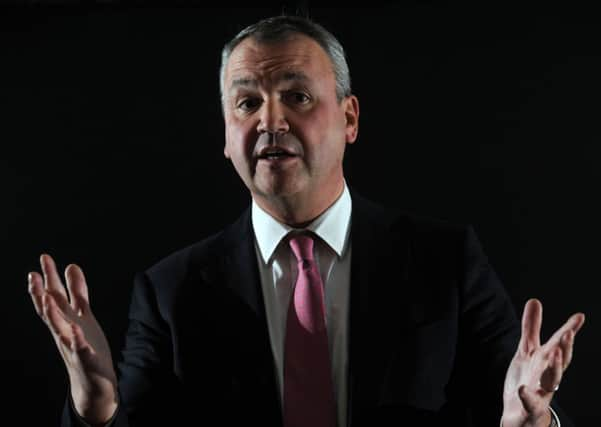Asda to put focus on store openings in South


The Leeds-based grocer will spend £750m on new stores this year, opening 500,000 sq ft of new space – up from 350,000 sq ft last year.
Asda’s chief executive Andy Clarke said that the new stores would not feature “fancy counters that are expensive to operate”, in what most people will see as a dig at rival Bradford-based Morrisons, which has been criticised for introducing new fresh food counters and displays.
Advertisement
Hide AdAdvertisement
Hide AdAsda said that the economy is still very fragile as it announced a 0.1 per cent fall in like-for-like sales in the 13 weeks to January 3 although it said it kept its gross margin steady.
The results represented a slowdown from like-for-like growth of 0.3 per cent in the third quarter.
Mr Clarke said that the group had a good December, but all retailers found October and November very challenging.
He rejected the idea that Aldi and Lidl shoppers stayed with the discounters over Christmas instead of trading up to the main supermarkets, as they usually do.
Advertisement
Hide AdAdvertisement
Hide Ad“We were surprised that other retailers said that. Christmas was positive for us. We saw a move from discounters to Asda,” he said.
Last month Morrisons said that a number of shoppers who usually trade up to Morrisons to get their December shop had decided to stay with Aldi and Lidl.
Tesco and Morrisons both reported underlying sales falls for the Christmas period, while Sainsbury’s showed a small rise.
Asda’s new finance director Alex Russo said that the group achieved the widest price gap between Asda and Tesco it has ever seen and the closest gap it has ever had with Aldi and Lidl.
Advertisement
Hide AdAdvertisement
Hide AdMonthly data published last week by Kantar Worldpanel showed the slowest industry growth since 2005 as spending remains under pressure because inflation is outstripping modest pay rises.
The data revealed that till rolls were just 2.4 per cent higher in the 12 weeks to February 2, which included inflation of 2.1 per cent.
Asda joined Tesco and Morrisons in losing market share over the period, to 17.3 per cent from 17.7 per cent a year earlier, even though it managed to grow sales by 0.5 per cent, according to Kantar.
Asda’s chief merchandising officer Barry Williams said the group has now removed all short-term vouchers in order to focus on low prices every day.
Advertisement
Hide AdAdvertisement
Hide AdHe added that customers are becoming less and less interested in gimmicks.
“According to Kantar, over four per cent of the big four retailers’ sales were given away for free over Christmas,” he said.
“We didn’t do any vouchers so this means five per cent of their sales were given away for free. There is a cost for this and it’s not being borne by the retailer – it’s being borne by the customer.”
He added that Asda could have produced stronger like-for-like sales if it had put prices up higher, but he claimed that Asda’s rate of inflation is half that of its rivals.
Advertisement
Hide AdAdvertisement
Hide AdAsda spent last year introducing a new initiative called Price Lock where it locked the price of everyday essentials such as bread, milk, mince, eggs, butter and cucumbers.
Cucumbers were cut to 50p each and have stayed that price for over a year. As a result Asda’s cucumber sales went up from 30 million to 50 million.
“Over the year, Tesco and Morrisons changed their prices at least 10 times,” said Mr Williams.
“Price Lock demonstrates that honest, transparent pricing really works. Our customers can trust us that we’ve locked the price.”
Advertisement
Hide AdAdvertisement
Hide AdAsda said it started with price locks on just eight items, but this has now stretched to 80.
Mr Clarke said: “Last year was a tough year.
“Coming out of vouchering was a significant change point for us. We no longer have that voucher baggage.”
The group spent more than £60m on price cuts in the Christmas quarter under a £1bn investment plan outlined last November.
Mr Clarke predicted that the first quarter of 2014 will continue to be very challenging.
Advertisement
Hide AdAdvertisement
Hide AdAsda has been fighting to maintain its position as the second biggest supermarket chain behind Tesco as strong growth has helped Sainsbury’s narrow the gap, with a market share of 17.1 per cent.
Asda’s figures were released as US parent Wal-Mart reported sliding sales and profits in its fourth quarter.